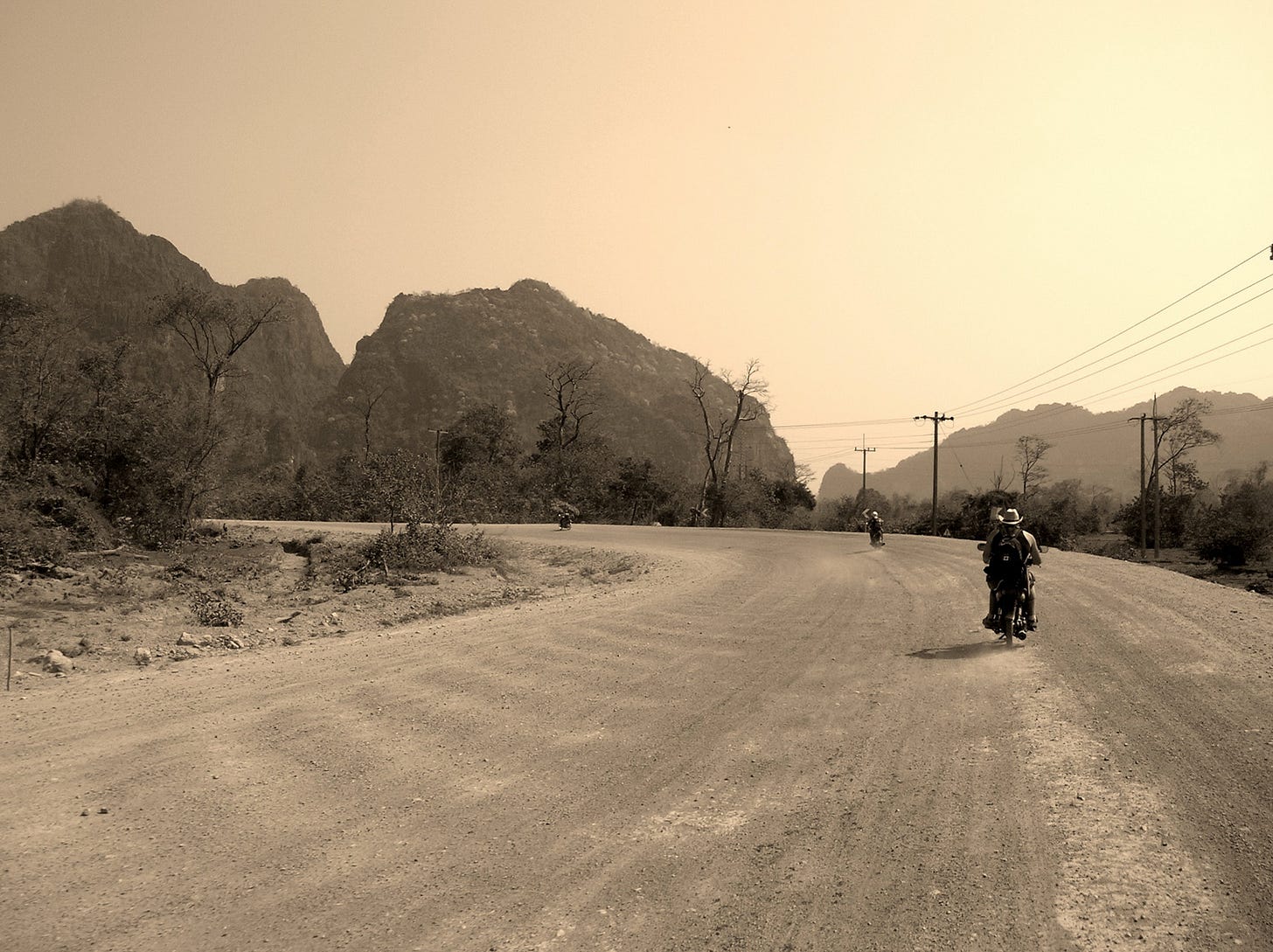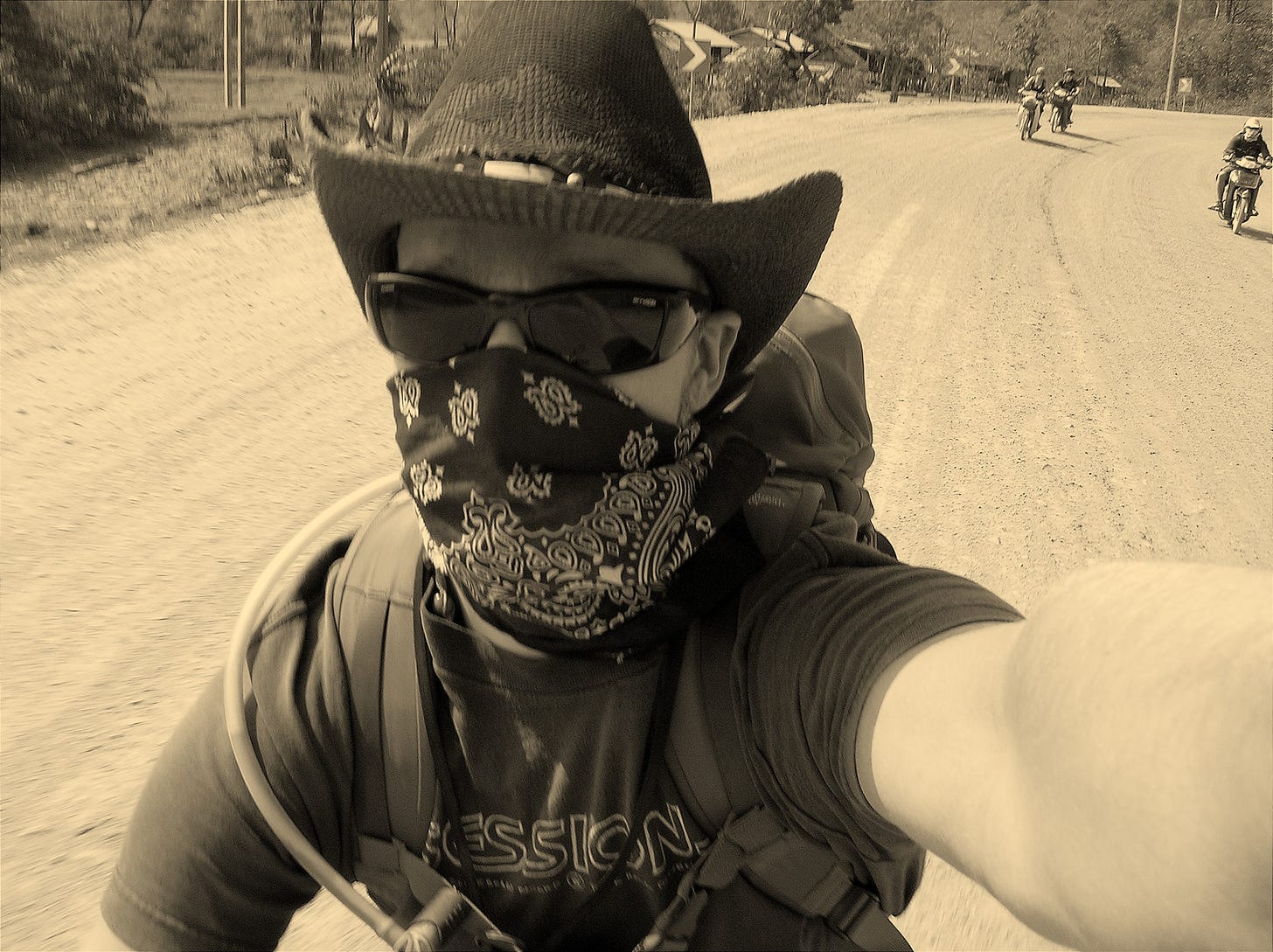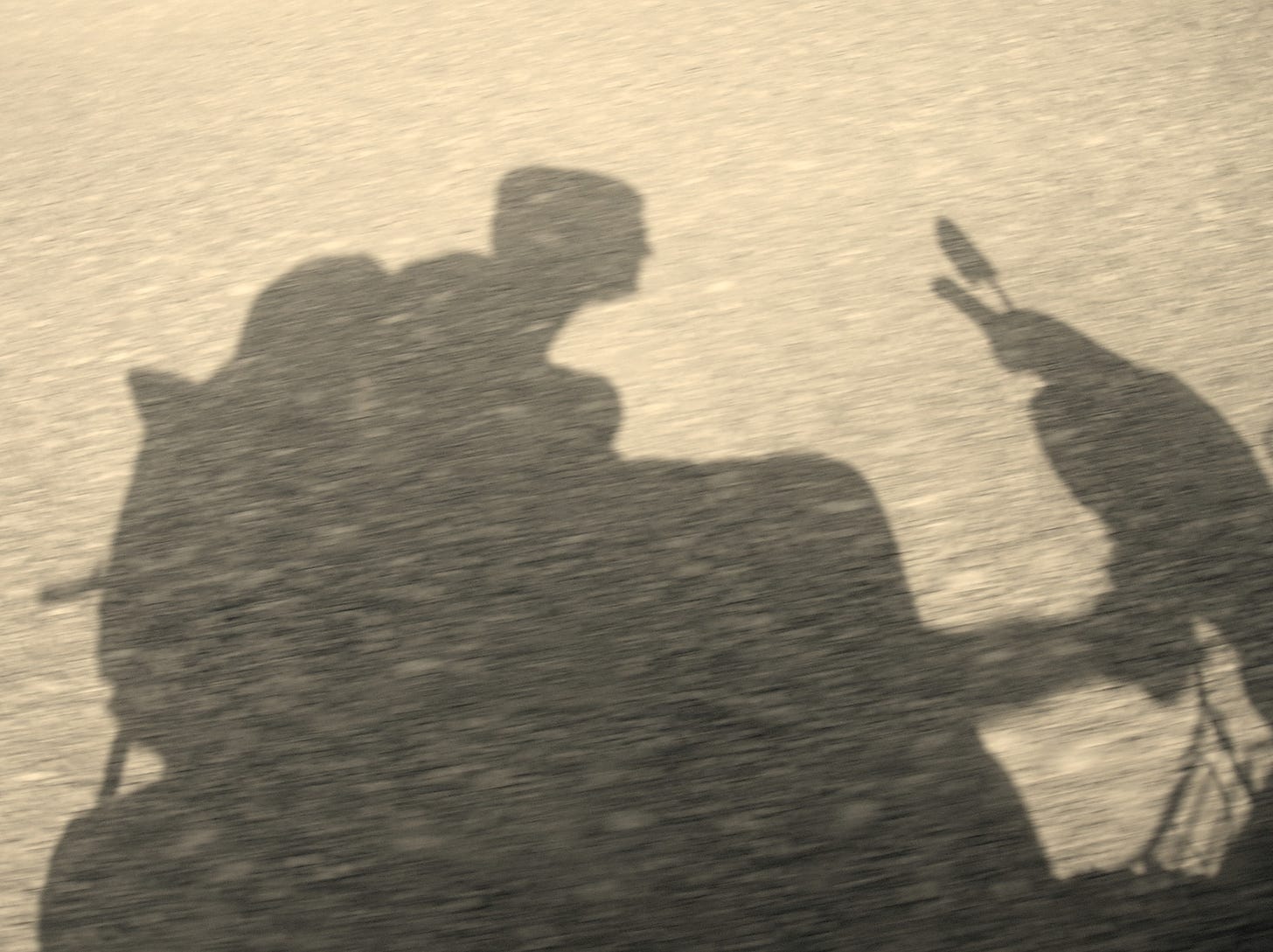
Are there any remote places anymore? Places where few travel to but are actually amazing? A hidden gem. Perhaps marred by past social unrest or war but filled with generous, kind people, remarkable beauty and novel experiences. A place where you can stretch money like elastic bands; where on dollars a day you get accommodation, three square meals and more beer than you care to drink; where you can travel for months and live like a king—well, as kingly as you can while backpacking through one of the poorest countries in the world.*
In my early twenties, I traveled to Laos, as part of a larger trip to South East Asia, and experienced the joy of immersing myself in a culture that rarely saw foreigners. On the road, we were a quite a sight. Locals stopped for pictures with "the falang." We didn’t see others like us for days at a time, and it was nice. Do people still have these experiences?
This was before the ultra-connectivity of our modern society**; before everyone and their dog had TikTok or a travel vlog; before you could see the far reaches of our world from a handheld screen while sitting on the toilet. Knowing a place (apart from physically being there) involved books and word of mouth. I first heard of Laos as a backpacker destination from my brother who taught English in South Korea. But, the country drew me in after reading a brief article in a small travel magazine my mother stuffed in my stocking the Christmas before my trip to SEA (yes, I still received a stuffed stocking in my early twenties, ha ha). The article was about an obscure motorbike trek called “The Loop”—which evidently is not so unknown anymore.
With social media and influencer culture so prominent now, most travel related content errs to the side of opulence and luxury. Glam shots on private islands and tours of pricey accommodations in well known and expensive destinations fill our social feeds. Have we lost the novelty of feeling we’ve discovered a place? What happened to the excitement of being in a unique location? Why do most people choose to bypass the remote and difficult-to-reach yet distinctive place?
Do people still know the thrill of miming their way onto public buses, uncertain that you will actually make it to your destination, or the time it will take to get there? And do these buses still travel with goats on the roof, with hooves clumping at every turn? Do they still drive with chickens in baskets, which slide back and forth under the seats as the driver traverses switch backed mountain roads? Do travelers still experience the exhilaration of life as a local in a foreign place? Are there people who love the punch of unfamiliar smells in a street market? And the pure culture shock of seeing a ramshackle bamboo hut that houses a family of eight and a seventy-two inch plasma TV (which you can clearly see through the gaps in the siding)? Do people still seek places that elicit trepidation, only to realize their consternation comes from their ignorance and fear of the unknown?
Despite my going on about discovery, I realize that no one actually discovers anything. People have inhabited most places on this earth for centuries, if not millennia. The idea of "discovering" is a vestige of colonialist thought. However you choose to describe it, there is an undeniable excitement when you venture into a less trodden place; exploring where few others have set foot; wandering as an outsider in a lesser known corner of our planet.
Saying the name of a place that very few know (beyond those who live there) holds a special place in my heart. Yet, there is an irony to this: the novelty of a place is short-lived. The unknown becomes the known; the places along The Loop are quite popular now.
This type of travel was formative for me, as a young man trying to grasp the coattails of adulthood. After my four years of postsecondary education, I was ready (so I was told) to enter the workforce, but it didn’t feel right. I didn’t feel ready. I didn’t want to be ready. So I opted to save my pennies and travel. Reminiscing on my travels nearly twenty years later brings forth a regretful nostalgia: I should have traveled more.
In the preceding decades, the demands of adulthood grew, and I look back at those escapades in foreign lands with jealous envy. I took my freedom for granted. I overlooked the carefree nature of an open itinerary and the value of a peripatetic life in the far-flung. I failed to recognize the potential of extended travel and the self-discovery that accompanies novel immersive cultural experiences.
I moved abroad in recent years—now living in Central America—to reconnect to my deep-seated wanderlust. But it's different now: the responsibilities of parenthood silo travel into structured and costly endeavors. Don't get me wrong, I'm grateful for the ability to live abroad and travel (and to have a loving family). It's a privilege that many cannot realize, for many reasons. Yet, I crave the freedom only that type of travel provides.
So, are there still places where young adventurers can venture into the unknown? Where the intrepid traveler can cut their teeth? Somewhere to explore and slow the inevitable entry (or avoid it all together) into the modern, inside-the-box living? Have we explored all corners of our world? Does the novel place cease to exist?
*I am referring to Laos, one of three countries I travelled on $3500 Canadian dollars, which included my flights! Can you still do this today?
**We had cell phones, but didn’t bring them with us because there weren’t plans for overseas travel yet.




While trekking in Nepal's Himalayas 40+ years ago, I decided to get off the beaten path and away from so many other First World world travelers, so I took a fork in the path around the other side of a mountain. A few hours later I neared a small village and saw a young boy in native dress up ahead. He seemed to be dancing. I thought, Oh good, native culture. When I got close to him, I noticed he had one of those newfangled inventions, a Walkman. He was singing along: Disco down, man, disco down!
Back at my English language teaching pist in Saudi Arabia, where tourist visas didn't exist, I took three vacations in-country, one hitchhiking and another on my 100cc motorcycle into The Empty Quarter, inspired by Wilfred Thesiger's dangerous travels 40 years earlier, though I carried a long letter from the colonel of the army post where taught requesting safe passage. I stayed several days with a Bedouin camel-herding family and broke the Ramadan fast with the emir of the Bani Mura, the last nomadic tribe. A memorable trip among people who'd heard a lot about America but who'd never met an American. I hear Saudi Arabia has now opened itself to tourism.